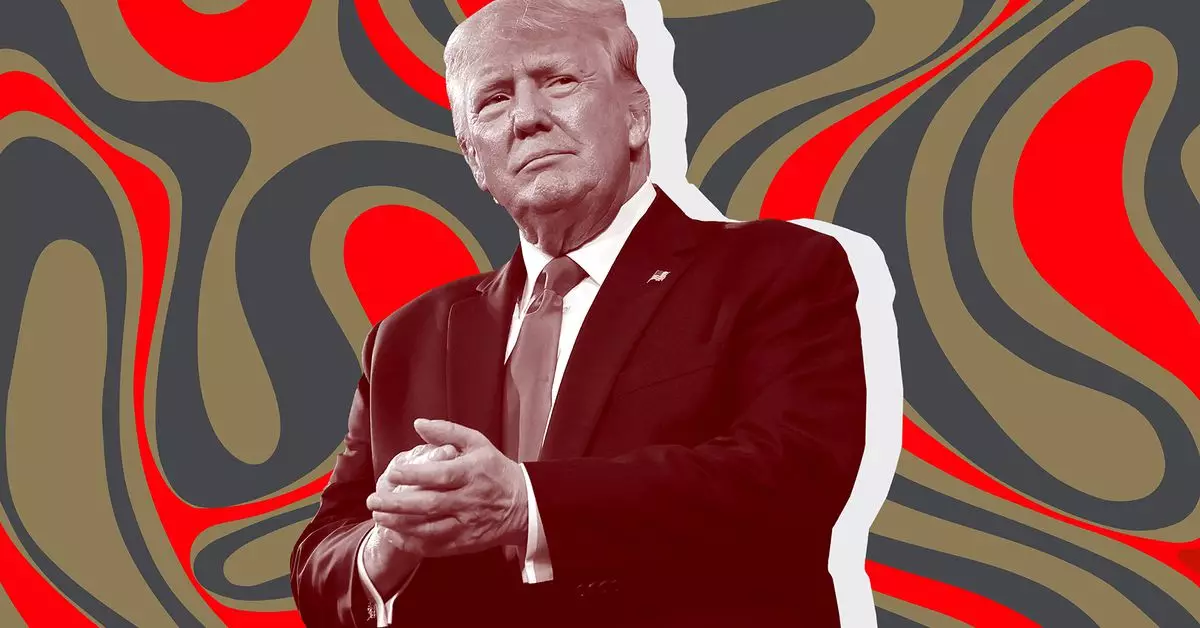The world of cryptocurrency continues to push the boundaries of finance, and a recent project launched by former President Donald Trump has garnered significant attention. World Liberty Financial (WLF) kicked off its token sale on a Tuesday, but the excitement was met with immediate challenges as the website crashed due to unprecedented traffic. This situation raises questions about the viability and execution of such decentralized finance projects, especially when they are piloted by high-profile figures.
On September 30th, 2023, the whitelist opened for the much-anticipated WLF token sale, specifically targeting accredited investors and non-U.S. persons. World Liberty Financial co-founder Zach Folkman stated that interest surpassed expectations, with “well over 100,000” enthusiasts eagerly signing up for WLFI tokens. However, when the token sale finally launched, the overwhelming demand caused the website to go down, illustrating the unpredictability of such ventures. After several hours, the site was back online, but the initial hiccup may have tarnished what was meant to be a smooth transaction process.
Despite the crash, blockchain data showed that approximately 5,317 unique wallet addresses possessed WLFI tokens by Tuesday afternoon. In a grand total, the company reported sales exceeding 532 million tokens out of the 20 billion available for purchase. Such numbers suggest significant interest, yet the actual participation appears limited to a small fraction of the projected investor base.
The WLFI token is designed to serve a governance role within the World Liberty Financial platform. Token holders will be granted the power to influence various aspects of the platform, including protocol updates, promotional partnerships, and security oversight. Notably, the WLFI token is currently non-transferable, meaning its liquidity is constrained in the initial stages. This design choice might create friction among investors seeking flexibility.
Sandy Peng, an advisor for World Liberty Financial, pointed out that the website’s outages were driven by an unexpectedly high level of interest, citing 72 million unique visits shortly after the token launch. This overwhelming traffic not only reflects the marketing prowess behind Trump’s association but also hints at potential challenges in scalability and user experience that the platform may face as it matures.
One fundamental concern with World Liberty Financial’s approach is its restriction to accredited investors. To qualify, individuals must meet specific financial criteria, including an income threshold or substantial net worth. While promoting the platform as a solution for the unbanked or de-banked, it is ironic that access is limited to financially privileged individuals. This contradiction raises questions about the project’s real commitment to inclusivity and democratization in the financial sector.
Moreover, the launch of the so-called “gold paper” outlining the WLFI ecosystem named Donald Trump as the “chief crypto associate,” with his sons assigned the role of Web3 Ambassadors. This familial involvement enhances the brand’s visibility but also places additional scrutiny on the operational integrity of the project. As cryptocurrency remains an evolving landscape, transparency and credibility are paramount for sustaining consumer confidence.
The launch of World Liberty Financial’s WLFI token underscores both the fervor surrounding cryptocurrency and the complex layers of market accessibility and trustworthiness. While initial interest appears robust, actual participation levels raise doubts about the project’s long-term viability and commitment to its stated goals. The impacts of such high-profile endorsements also warrant caution, as they may manipulate perceptions rather than contribute meaningfully to the maturation of decentralized finance.
As this project unfolds, it will be essential to monitor not only its technological performance and market reception but also its ability to navigate the intricate landscape of regulations and consumers’ trust. Ultimately, the journey of World Liberty Financial presents a case study in the evolving dynamics of finance, especially on how celebrity influence can shape the potential success or failure of innovative financial models.

